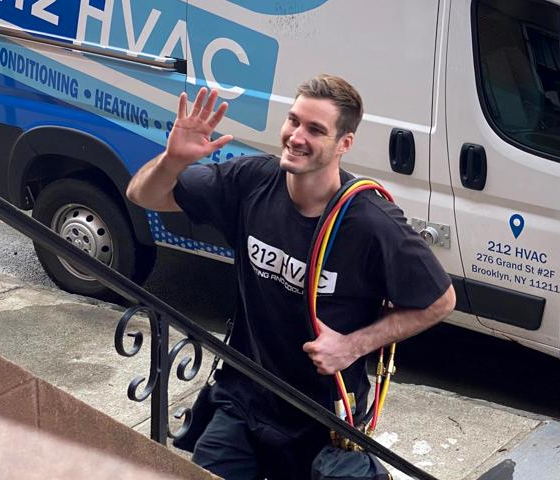
Licenses
Maine requires HVAC contractors to have a business license in order to operate in the state. This state has 16 counties and 23 cities, and contractors need to be aware of local regulations before beginning a job. Permits may also be required for new installations. If you have any questions regarding the licensing status of contractors in your community, please ask them.
Some states require contractors to have both a business license and an HVAC certification. A business license grants the right to profit-generating activities in a particular jurisdiction. HVAC certification, however, is proof that the HVAC contractor has all the required skills and is qualified to perform in the field.
Education requirements
Maine HVAC contractors need to be licensed. You can obtain this license in many ways. One way is to complete an apprenticeship. Another way is to get hands-on training. The Department of Labor can help you find training options in your area. You can also check local job listings to find apprenticeships that match your skill level.

Maine HVAC contractors must pass an exam to become certified and must also pass a final field examination. A candidate must pass the Maine Building Performance Institute exam in order to obtain this license. The multiple-choice test consists of questions that can be answered in multiple ways. A passing score of at least seventy five percent is required.
Certifications
The right certifications are necessary to become a certified professional in Maine's HVAC industry. These certifications will allow you to prove your expertise to potential clients and employers. There are many different certifications you can get, including NATE or ASHRAE certifications. To enhance your marketability, it is possible to add professional certifications. Maine's state will help you find the right certifications for you.
There are many different types of HVAC certifications available. Some are state-specific. Others are federally-issued. It is important to choose HVAC contractors who are certified by a national organization or state.
Reliability
It is important to choose a company that can install or repair your cooling and heating systems. If you don't know the reputation of a company, search for one that is well-respected for their high quality service. A reliable contractor in Maine will be more than happy to answer all of your questions and provide you with the appropriate quote.

Prices
HVAC contractors are required to provide heating and cooling services in many Maine homes and businesses. HVAC is a highly technical trade that requires specialized certification and training. The cost for HVAC licenses can vary depending on where you apply. Northeast Technical Institute, for example, costs approximately $20,000 to train and requires continued education every 2 years.
If you already have a license in another state, you may be able to transfer it to Maine without taking additional tests. It is worth considering the licensing requirements and average salary for HVAC contractors before you move to another state. Consider the cost to recertify your license in another state.
FAQ
Do I have to think about any additional factors?
Yes - check your local laws regarding the types of projects you can undertake and the conditions you need to meet. You might need approval from the council in order to build in certain states. Others state that you need only notify them of the plans. For more information, consult your local authorities.
Do I have to sign anything prior to starting work?
Yes, your SCA must be signed by both parties. This means that one party cannot change their mind without the consent of another.
Do I require a legal representative in order to sign my Service Agreements
No. To sign service agreements, you don't have to be a lawyer. However, you might want to appoint a legal representative as a precautionary measure.
People who act for another person are called legal representatives. If you are a contractor you might want to appoint someone as your professional representative.
This could involve hiring a solicitor, accountant, or other professional. You could also appoint someone to take care of your business interests.
The client usually appoints a legal representative. Sometimes, however a vendor will hire a legal representation.
A legal representative can help you to protect yourself legally in either of these cases.
Who has to pay for the service?
Your SCA defines who is responsible for paying for the service. In the event that the service provider is not paid fully, they may be eligible to seek compensation from the courts.
Where can I obtain more information about building permits
Ask your local government office (for instance, NSW Local Government Association), or talk to your real estate agent. They should be able tell you the best way to go about obtaining permission.
Statistics
- (v) Place or places of performance of the prime contract and first-tier subcontracts estimated at $10 million or more, if known. (acquisition.gov)
- (1) Except as provided in paragraphs (a)(4) and (a)(8) of this section, if the estimated amount of the contract or subcontract is $10 million or more, the contracting officer shall request clearance from the appropriate OFCCP regional office before- (acquisition.gov)
- Reasonable late fees go up to 25% per year on unpaid sums. (lawdepot.com)
- (3) The contracting officer may provide for a contract price adjustment based solely on a percentage rate determined by the contracting officer using a published economic indicator incorporated into the solicitation and resulting contract. (acquisition.gov)
- (1) Ascertain the extent to that offers are based on the payment of overtime and shift premiums; and (2) Negotiate contract prices or estimated costs without these premiums or obtain the requirement from other sources. (acquisition.gov)
External Links
How To
What should a service arrangement include?
An SA is a key component of any business relationship. It sets out what you expect from one another and how you intend to achieve these expectations. The SA also specifies when and where you expect each party to fulfill its contractual obligations.
The key elements of a successful SA are:
-
Both parties agree on the scope of work and the services they require.
-
Details of payment terms including start date and end date for delivery of goods/services.
-
The project price must be agreed.
-
Additional costs, such as VAT, etc.
-
Whether there is anything else that needs to be discussed.
-
Who will take care of the job if it goes wrong?
-
How disputes will be resolved.
-
What happens to a contract breached by one party?
-
What happens in case of dispute.
-
When will the contract become effective?
-
What happens if one party fails to perform?
-
What length of time will you be required to pay invoices
-
Who pays for things such as travel expenses?
-
Where the money comes from.
-
What happens if a client changes mind about the project?
-
What happens when the supplier doesn’t show up.
-
Who is allowed to access the site during construction
-
What happens when the customer cancels a project?
-
What happens when the product is defective?
-
What happens if a manufacturer refuses to provide parts?
-
What happens when the equipment stops working?
-
What happens if the project takes longer than expected.
-
What happens if work isn’t completed in the timeframe agreed upon?
-
What happens to the project if it isn't up-to-standard?
-
What happens if the cost exceeds?
-
What happens to the materials if they are not delivered on-time?
-
What happens if the material arrives damaged.
-
What happens to the products if they are not up-to-standard?
-
What happens when the job is cancelled before completion?
-
What happens if the company goes bankrupt?